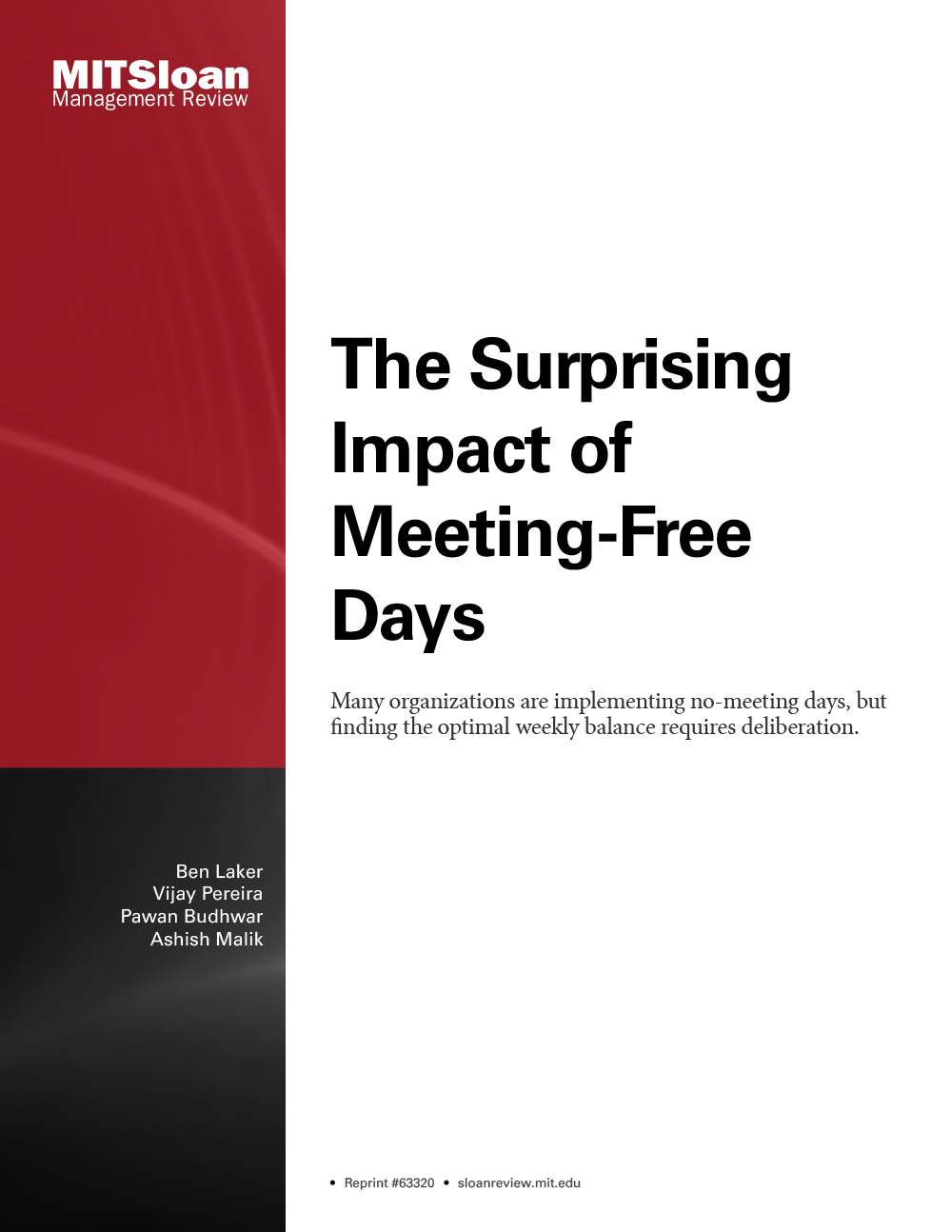
A Study of Spirituality in the Workplace
What do managers and executives believe and feel about workplace spirituality or assessments of its purported benefits? In this article, the authors present the results of a two-year empirical study based on face-to-face interviews and questionnaires. Participants differentiated strongly between religion and spirituality, viewing religion as a highly inappropriate form of expression and spirituality as a highly appropriate subject for the workplace. Most believed strongly that organizations must harness the immense spiritual energy within each person in order to produce world-class products and services.
Meaning and purpose on the job are imparted by (ranked from highest to lowest in importance): (1) "the ability to realize my full potential as a person"; (2) being associated with a good organization or an ethical organization; (3) interesting work; (4) making money; (5) having good colleagues and serving humankind; (6) service to future generations; and (7) "service to my immediate community." Beyond a certain threshold, the authors point out, pay ceases to be the most important factor in work life, and higher needs prevail; the desire for "self-actualization" becomes paramount.
The authors observed five basic designs or models in which organizations are religious or spiritual:
-- The religious-based organization may be positive toward religion and spirituality or positive toward religion and negative toward spirituality.
-- The evolutionary organization begins as strongly associated or identified with a particular religion and moves toward a more ecumenical position.
-- The recovering organization adopts the principles of Alcoholics Anonymous as a way to foster spirituality.
-- The socially responsible organization is led by someone guided by strong spiritual principles or values that are applied directly to the business for the betterment of society.
-- The values-based organization is guided by general philosophical principles or values that are not aligned or associated with a particular religion or even with spirituality.
-- Characterized by the underlying principle of hope, the models appear to have been precipitated by a critical event that caused intense difficulties for the company founders, heads, or the entire organization. All incorporate a principle or mechanism for limiting greed -- both the unlimited accumulation of money and the unrestrained pursuit of power.
With a few notable exceptions, people who consider their organizations as being spiritual also see them as better than their less spiritual counterparts.




